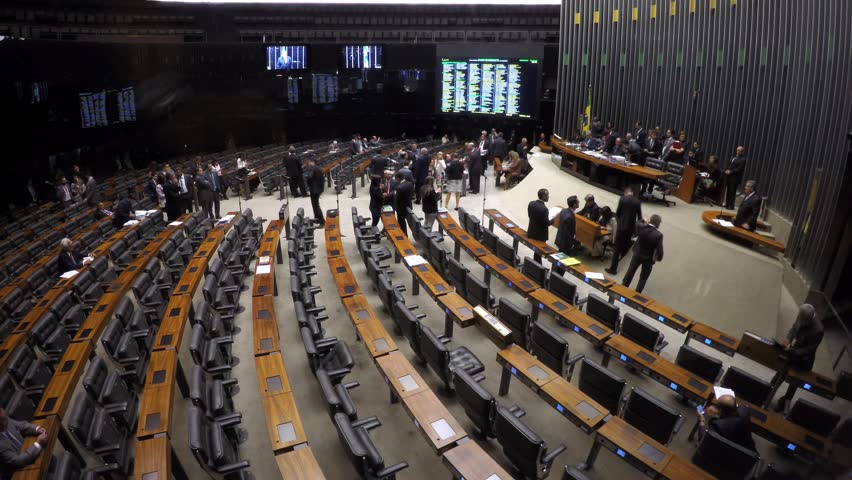RIO DE JANEIRO, BRAZIL – The plenary of the Chamber of Deputies passed, on Tuesday, March 17th, three bills aimed at tackling the Coronavirus pandemic. The issues are now under consideration in the Senate.
With few deputies in the plenary, the session was marked by the physical distance between the deputies, while several were wearing masks. The plenary session, which usually gathers legislators, advisors and journalists, is limited to deputies after a decision by the Presiding Committee to prevent the spread of the coronavirus in the Chamber.

Among the bills passed is a ban on the export of medical, hospital and hygiene products needed to fight the pandemic in Brazil. The provision bans the sale abroad of personal protective equipment for use in the health area, such as mechanical lung ventilators and circuits, latex gloves, nitrile gloves, waterproof gowns, goggles, caps, surgical masks, face shields, hospital beds and multi-parameter monitors.
During the voting, deputies included in the text the option for the Executive to include or remove items from the list, according to Brazil’s needs.
The deputies likewise passed the bill authorizing the managers of the Unified Health System (SUS) to use health action funds to fight the coronavirus pandemic.
Authored by Deputy Carmen Zanotto, the bill may cover up to R$6 billion in noncommitted funds, which are currently frozen in state and municipal accounts. The use of these resources, which come from the Ministry of Health, is conditioned to the compliance with specific programs and projects and to the fulfillment of pre-established criteria by each one of them.
Legislators further passed the bill that suspends for 90 days a resolution of the National Health Surveillance Agency (ANVISA) so as to permit 70% ethyl alcohol being sold in larger containers.
Distance voting
An agreement between the parties enabled the sue of the Remote Deliberation System (SDR), which will allow for remote debate and voting on matters to be considered by the Chamber’s plenary.
The measure aims to avoid the need for a high quorum of deputies in plenary session votes. Currently, deputies over 65 years of age are waived from activities within the Chamber of Deputies. The contingent of absent legislators will further increase next week, as the waiver will be extended to those over 60.
The software that will enable voting is still being developed by the Chamber’s Information Technology team and should be in operation next week.

